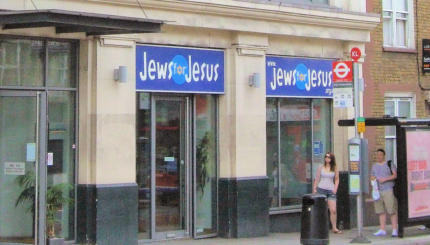Last week, a 15 year-old boy had to have his leg amputated after being wounded by an exploding Purim gift basket. Police are investigating the matter, and it seems likely that the boy was targeted because he is a Messianic Jew.
If it turns out that the boy was, indeed, a victim of Jewish terrorism, it would be another attack added to the unfortunate list of violent acts perpetrated by Jews on Purim.
The story also piqued my interest because the boy’s family lives in Ariel, a large settlement bloc in the West Bank.
Needless to say, Jews for Jesus members are not the first people I think about when I envisage the population of such a community.
Reading up a little, though, I discovered some interesting facts about both Ariel and Messianic Jews in Israel. First, Ariel was founded by secular Israelis and, by at least some estimates, only 10% of current residents are Orthodox. In addition, up to 45% of residents are immigrants from the former Soviet Union.
This last fact may account for the Messianic Jewish presence in Ariel. There are about 15,000 Messianic Jews in Israel and the West Bank today, and according to an article in the Jerusalem Post in 2005, this number is double what it was before the influx of immigrants from the FSU.
In general, Jews tend to be very wary of Messianic Jews and their missionizing ways. But it seems likely (to me at least) that many of these Messianic Jews from the FSU were not religiously Jewish when they immigrated to Israel. Surely, a large number were practicing Christians who happened to have a Jewish grandparent or spouse.
One might argue, then, that these not-originally-Jewish Messianic Jews are a good thing for Israel and the Jewish people. They celebrate Jewish holidays, feel connected to the Land of Israel, and are invested in the destiny of world Jewry — even if they do believe in Jesus.
Purim
Pronounced: PUR-im, the Feast of Lots, Origin: Hebrew, a joyous holiday that recounts the saving of the Jews from a threatened massacre during the Persian period.

